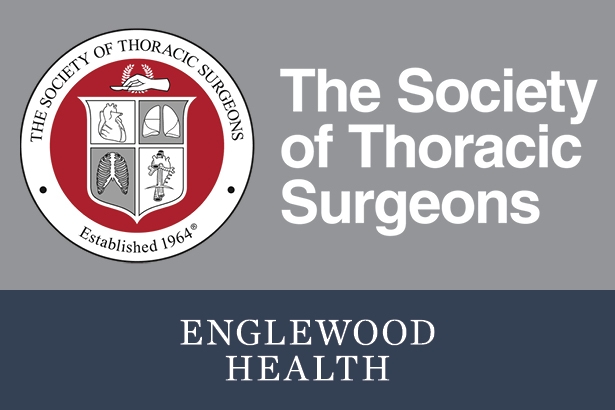 Englewood Health News
Englewood Health NewsEnglewood Health Achieves Highest Possible Quality Rating for Valve Replacement Procedure
New Jersey’s only hospital to achieve a 3-star rating for transcatheter aortic valve replacement
October 24, 2022 — Englewood Health has been recognized by The Society of Thoracic Surgeons with a 3-star rating—the highest possible quality rating—for transcatheter aortic valve replacement (TAVR).
This mark of distinction reflects the accomplishments of the Structural Heart and Valve Program at Englewood Health in treating patients with valve disease using innovative, minimally invasive procedures.
Englewood Health is the only hospital in New Jersey to achieve this honor.
“We whole-heartedly congratulate the interventional cardiologists, cardiothoracic surgeons, and other practitioners and clinical staff who work together to perform this life-saving procedure,” said Warren Geller, president and CEO of Englewood Health. “It is the incredible expertise and collaboration of this team that ensures the best possible outcomes for our patients.”
This recognition comes just months after Englewood Health received the American College of Cardiology’s Transcatheter Valve Certification, another national honor for excellence in TAVR procedures.
Englewood Health was one of the first hospitals in the country to begin offering TAVR, a minimally invasive heart valve replacement procedure, following its FDA approval in 2011.
“To date, our Structural Heart and Valve Program has performed over 1300 TAVR procedures, with the best possible success rates and outcomes for our patients,” said Joseph De Gregorio, MD, executive director of cardiovascular services at Englewood Health.
TAVR is used to treat aortic stenosis, a narrowing of the heart valve that often leads to symptoms such as shortness of breath, lightheadedness, and fatigue. During the procedure, a thin tube is used to guide a new, artificial aortic valve into the heart to replace the damaged valve.
“TAVR offers patients relief from their aortic stenosis symptoms, as well as shorter hospital stays and quicker recovery times than open-heart surgery—the traditional method of valve replacement,” said Ramin Hastings, MD, medical director of the Structural Heart and Valve Program and interventional cardiologist at Englewood Health.
TAVR was originally offered as an alternative treatment for patients who were not candidates for open-heart surgery due to their age or risk for complications. Since then, the number of patients who stand to benefit from the use of TAVR has grown significantly.
“The indications for TAVR have expanded over time given the safety of the procedure and the benefits from a patient recovery and quality of life standpoint,” said Adam Arnofsky, MD, chief of cardiothoracic surgery at Englewood Health.
Englewood Health’s TAVR program has also expanded to include lower risk patients and is growing at a rate of 10 percent each year. With each additional procedure performed, their wealth of experience grows, yielding even better results for patients.